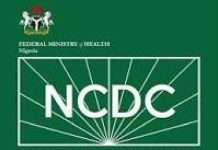Thousands of people have been infected with Coronavirus all over the world, and as the virus spreads and fear grows, people are taking a lot of precautions to keep themselves from contracting it.
Some of these preventive measures are: Working from home, regular hand washing with soap and water, avoiding of crowds, no handshaking, and so on.
Here are five myths about Coronavirus that have been debunked by the World Health Organisation.
Myth: Cold can kill the Coronavirus
What WHO says: There is no reason to believe cold weather can kill the new Coronavirus or other diseases. The normal human body temperature remains around 97.7 F to 98.6 F (36.5 C – 37.0 C) regardless of the external temperature or weather.
Myth: Coronavirus can be transmitted through mosquito bites
What WHO says: This is the South, after all, and those blood suckers will be hungry soon. However, WHO says, to date there has been no information or evidence to suggest the new Coronavirus could be transmitted by mosquitoes. It is a respiratory virus that spreads “primarily through droplets generated when an infected person coughs or sneezes, or through droplets of saliva or discharge from the nose.”

Myth: Spraying alcohol or chlorine all over your body will kill the Coronavirus
What WHO says: Spraying alcohol or chlorine all over your body will not kill viruses that have already entered your body. Not only that, but these substances can be harmful to your mucous membranes (not to mention your clothes). Both alcohol and chlorine disinfect surfaces, but they need to be used correctly.
Myth: Rinsing your nose with saline will thwart the new virus
What WHO says: There is no evidence rinsing the nose with saline has protected people from infection with the new Coronavirus. There is limited evidence it can help people recover more quickly from the common cold, but it has not been shown to prevent respiratory infections.
Myth: Eating garlic can help prevent infection
What WHO says: Garlic has some antimicrobial properties. However, there is no evidence from the current outbreak that eating garlic has protected people from the new coronavirus.
Myth: Face masks can protect you from the virus
What WHO says: Standard surgical masks cannot protect you from SARS-CoV-2, as they are not designed to block out viral particles and do not lay flush to the face, Live Science previously reported. That said, surgical masks can help prevent infected people from spreading the virus further by blocking any respiratory droplets that could be expelled from their mouths.
Within healthcare facilities, special respirators called “N95 respirators” have been shown to greatly reduce the spread of the virus among medical staff. People require training to properly fit N95 respirators around their noses, cheeks and chins to ensure that no air can sneak around the edges of the mask; and wearers must also learn to check the equipment for damage after each use.
Myth: Getting COVID-19 is a death sentence
What WHO says: That’s not true. About 81 per cent of people who are infected with the Coronavirus have mild cases of COVID-19, according to a study published on 18 February by the Chinese Centre for Disease Control and Prevention. About 13.8 per cent reported severe illness, meaning they have shortness of breath, or require supplemental oxygen, while about 4.7 per cent are critical, meaning they face respiratory failure, multi-organ failure or septic shock. The data thus far suggested that only around 2.3 per cent of people infected with COVID-19 die from the virus. People who are older or have underlying health conditions seem to be most at risk of having severe disease or complications. While there’s no need to panic, people should take steps to prepare and protect themselves and others from the new Coronavirus.
Myth: Kids can’t catch the Coronavirus
What WHO says: children can definitely catch COVID-19, though initial reports suggested fewer cases in children compared with adults. For example, a Chinese study from Hubei province released in February found that of more than 44,000 cases of COVID-19, about only 2.2 per cent involved children under age 19.
However, more recent studies suggest children are as likely as adults to become infected. In a study reported 5 March, researchers analysed data from more than 1,500 people in Shenzhen, and found that children potentially exposed to the virus were just as likely to become infected as adults were, according to Nature News. Regardless of age, about 7 per cent to 8 per cent of contacts of COVID-19 cases later tested positive for the virus.
Still, when children become infected, they seem less likely to develop severe disease, Live Science previously reported.
Myth: If you have Coronavirus, you’ll know
What WHO says: No, you won’t. COVID-19 causes a wide range of symptoms, many of which appear in other respiratory illnesses such as the flu and the common cold. Specifically, common symptoms of COVID-19 include fever, cough, difficulty breathing, and rarer symptoms include dizziness, nausea, vomiting and a runny nose. In severe cases, the disease can progress into a serious pneumonia-like illness — but early on; infected people may show no symptoms at all.
U.S. health officials have now advised the American public to prepare for an epidemic, meaning those who have not travelled to affected countries or made contact with people who recently travelled may contact the virus. As the outbreak progresses in the U.S., state and local health departments should provide updates about when and where the virus has spread. If you live in an affected region and start experiencing high fever, weakness, lethargy or shortness of breath, or have underlying conditions and milder symptoms of the disease, you should seek medical attention at the nearest hospital, experts told Live Science.











tadalafil online 20: http://tadalafilonline20.com/ generic tadalafil united states